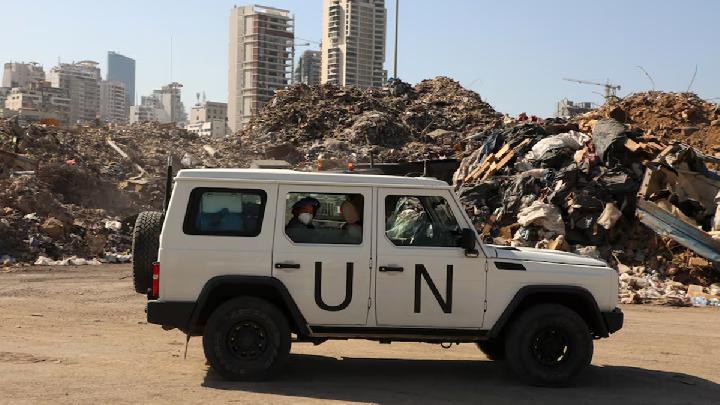TEMPO.CO, Jakarta - US President Donald Trump has officially announced the end of US sanctions on Syria, a move seen as a major victory for Iran, which has gained significant influence in Syria since the ouster of longtime leader Bashar al-Assad in December, Al Jazeera reports.
Trump made the declaration during a visit to Saudi Arabia, saying, "A new government has been formed that we hope will stabilize the country and maintain peace." He added that the lifting of sanctions would give Syria "an opportunity to achieve greatness."
History of Sanctions and Their Impact
The United States, along with other countries, imposed sweeping sanctions on Syria during al-Assad's rule, which lasted from 1971 to 2024. Syria was designated a "State Sponsor of Terrorism" in 1979, resulting in an arms embargo and financial restrictions that limited foreign aid. Sanctions were further increased in 2004, further tightening controls on arms exports and limiting economic interaction with the US.
After the Syrian conflict erupted in 2011 and the Assad regime began violently suppressing civilian protests, the US and its allies imposed tighter sanctions. These included a freeze on Syrian government assets abroad, a ban on US investment in Syria, and restrictions on oil imports.
The US also offered a $10 million reward for the capture of Syrian leader al-Sharaa and designated Hayat Tahrir al-Sham—the group he led until it was disbanded after Assad’s fall—as a “Foreign Terrorist Organization.” Most of these measures were imposed in the early years of the conflict as the US sought to isolate the Assad regime and support the opposition, citing human rights abuses and the use of chemical weapons.
Shifting US Policy
With the new Syrian government in place since December, the US has rescinded the bounty for al-Sharaa’s capture, allowing him to travel internationally and meet with foreign leaders, including those in Saudi Arabia and France.
The new administration has sought to present itself as moderate and globally acceptable, distancing itself from terrorist organizations, promising counterterrorism cooperation, and advocating for minority rights—a significant issue given Syria’s history of sectarian violence.
Syria has also tried to reassure the US that it poses no threat and can even be a partner, and has reportedly engaged in indirect talks with Israel to ease tensions with the US’s main Middle East ally, despite ongoing Israeli airstrikes and territorial occupation in Syria. There has even been talk of possible US-Syrian business ventures, such as the construction of a Trump Tower in Damascus.
Regional Factors
Trump’s decision came after discussions with Saudi Crown Prince Mohammed bin Salman and Turkish President Recep Tayyip Erdogan. Regional allies such as Saudi Arabia, Qatar, and the UAE have supported the lifting of sanctions and backed the new Syrian government.
According to Omar Rahman of the East Council Global Affairs, these relationships were crucial to Trump’s move: “This is not particularly difficult for Trump to achieve. He doesn’t need permission from anyone, and he doesn’t need congressional approval.”
The dominant role of the US in the global financial system means that lifting sanctions signals to the world that business with Syria can resume. The sanctions have devastated the Syrian economy, and the new government faces enormous pressure to improve conditions amid high unemployment, poverty and frequent power outages.
While it is not yet clear whether the US itself will invest in Syria, increased Arab and Turkish investment is expected. As Rahman put it, “[The lifting of sanctions] removes a significant barrier to [Syria’s] ability to build some form of economic growth and prosperity. However, there are still many other challenges and obstacles that the country must overcome.”
Positive Impacts
According to the Sana news agency, the lifting of sanctions is anticipated to open the door to new capital inflows, investment and financial transactions, which could stimulate reconstruction efforts and economic activity in Syria.
The easing of sanctions could lower the cost of imports and trade, reduce shortages of basic goods and potentially stabilise prices, which have risen dramatically during the years of conflict and sanctions.
The decision could help revive battered industrial capacity and infrastructure, allowing the labor market to absorb returning workers and reduce unemployment, currently estimated at around 50%6.
Public sector wages, currently very low, could improve as government revenues from economic growth and investment increase, improving the livelihoods of millions of Syrians.
Challenges and Risks
Although US sanctions have been lifted, other sanctions such as the Caesar Act remain in place. These sanctions limit large-scale reconstruction investment and foreign aid, which are critical to a sustainable recovery, according to the Arab Gulf State Institute.
Syria’s economy has been severely damaged by years of conflict, with GDP shrinking by more than 50 percent since 2010 and infrastructure damaged by around 50 percent, meaning recovery will take time and significant resources.
The new government’s implementation of harsh austerity measures, including mass layoffs of civil servants and price hikes on basic goods such as bread, risks exacerbating the poverty and food insecurity that already affect most Syrians.
Economic liberalization policies that favor big business over small businesses and farmers could deepen inequality and social instability, and undermine inclusive growth.
Ongoing political instability, sectarian tensions and the legacy of the conflict continue to pose risks to economic recovery and investor confidence.
According to the UNDP, lifting sanctions alone will not guarantee immediate improvements in living conditions, as household incomes have lagged inflation for years, and many Syrians still cannot afford basic necessities.
Editor’s Choice: Trump Rejects Netanyahu's Push to Maintain Syria Sanctions
Click here to get the latest news updates from Tempo on Google News
















































